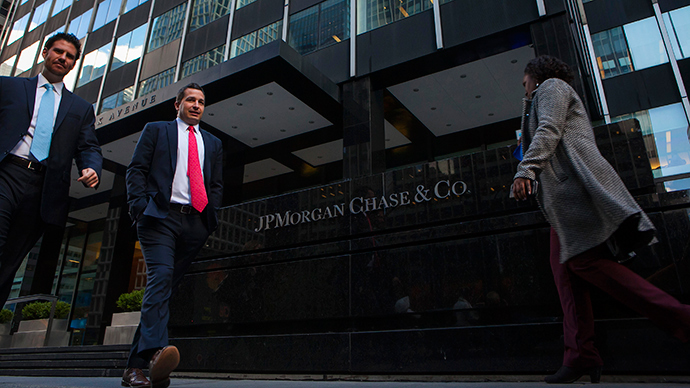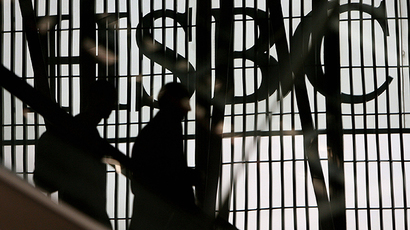Cyber attacks could pose ‘serious risk’ to UK financial system – MPs

A group of MPs is investigating whether cybersecurity breaches pose a risk to Britain’s financial system. The probe was sparked by mounting concern that protection for UK businesses and customers is currently deficient.
Britain’s House of Commons Treasury Select Committee has recently held a number of furtive meetings with UK regulators and other cybercrime experts in an effort to address the issue further, the Telegraph reports.
The move follows one of the most serious security breaches in Britain’s financial history last week, when US banking giant JPMorgan Chase publicly declared seven million households and 76 million businesses’ private data had been compromised by an industrial-scale cyber attack.
The cybersecurity breach, which is thought to have been conducted by hackers in the south of Europe, compromised the addresses, names, contact numbers, and email addresses of JPMorgan customers. The US firm insisted, however, that no financial data had been accessed by the hackers.
The chairman of the cross-party Treasury Committee, Andrew Tyrie, told the Telegraph that the incident revealed the extent to which banks are facing an almost perpetual risk of security attacks or breaches.
“The Treasury Committee has been looking at this issue for a number of years,” Tyrie, the Conservative MP for Chichester, said.
“The JPMorgan case illustrates the scale of the risks and the importance of ensuring that firms, regulators and, where appropriate, the intelligence agencies are taking all reasonable steps to prevent cybercrime,” he added.

One of the more powerful actors in Britain’s financial architecture, the Committee is responsible for monitoring the activities of the government and Bank of England. Members of the body have reportedly raised concerns relating to cybersecurity in Britain during a number of covert discussions with senior banking and state officials.
MPs have harbored concerns about the issue for several consecutive years, and Tyrie has brought the matter to the attention of UK banks and regulators on a number of occasions, according to the Telegraph. Although UK intelligence agencies, financial regulators, and private sector financial firms have orchestrated numerous schemes to tackle cybercrime in Britain, it remains one of the most prolific threats facing the country's financial sector.
According to a report published by the British Bankers’ Association and global accounting firm PricewaterhouseCoopers (PwC), an overwhelming 93 percent of Britain’s large-scale organizations were hit by security breaches between June 2013 and June 2014.
The research also revealed that many banking CEOs believe poor cybersecurity poses a considerable risk to financial growth.
British MPs are thought to be concerned about two primary forms of cybercrime – attacks on Britain’s financial edifice from foreign states wishing to compromise the UK's economic security, and cyber attacks on individual customers’ private information.
Commenting on the rise of cybersecurity attacks in Britain’s financial sector, a spokesman for the UK branch of the global hacktivist collective Anonymous told RT he is unaware of any plans “to organize an operation against UK or global financial institutions at this moment.”
The spokesman added that Anonymous would never “attack infrastructure or systems that affect innocent civilians” because such a move would be entirely against their ethos.
On a broader scale, the spokesman suggested that the political motivation for such cyber attacks could potentially stem from the manner in which “wealth is distributed and how the bankers have gained from the current state of our economies.”
In the case of Anonymous, he emphasized “the one thing that stops this is the fallout that would affect normal citizens.”
In January, the Met Police launched Project Falcon – an initiative to create a cohesive multi-skilled intelligence-driven center for policing fraud and cybercrime. The Met have expressed hope that the project, which is limited to London, will offer a significantly enhanced investigative resource capable of dealing with emergent challenges posed by cyber criminals.
Meanwhile, a report published in April by Her Majesty’s Inspectorate of Constabulary (HMIC), revealed that cybercrime presents a serious nationwide threat, and requires an adequate state-wide response by Britain’s police service. The HMIC independently monitors policing across the nation in the wider public’s interest.














